Introduction
Do you remember a time when your food made you feel fueled and vibrant- or has your food always kept you from living your life?
Have diagnoses and symptoms such as SIBO, IBS, or painful bloating plagued your relationship with food?
This week on The Goodness Lover Podcast, we spoke with naturopath Kirsten Greene- also known as the Gut Health and SIBO Queen.
Were you aware that your breathing could affect your nervous system AND your digestion?
Listen along as Kirsten Greene explains how to attack your bloating in the moment and how to train your gut bacteria to properly digest your food!
Together we will learn what causes bloating and how to work towards food freedom in your life without the worry of foods that will upset your stomach!
Watch the Interview:
Tune in to discover:
📈 The common causes of bloating.
⏱ How to quickly remedy bloating.
🏋🏼♀️ How to slowly and steadily train and nourish your gut bacteria.
🌲 Why SIBO and IBS are not life sentences.
🥬 The best diet for SIBO.
🌈 How to find food freedom so you can eat based on what you want to feel.
And much more!
Additional Resources
To connect with Kirsten Greene and discover more of her work, you can find her on Instagram and Facebook.Transcript
Sarah: Hello, and welcome back to The Goodness Lover Show. Today we're talking to Kirsten Greene to dive into the topic of bloating. Why does it happen, and how can we fix it? Let's get into it.
Kirsten Greene, we are so excited to have you today to talk all things bloating. We're excited to dive into your naturopathic and herbalist background to really get to the bottom of it, and hear your amazing story. So, thank you for joining us.
Kirsten Greene: Thanks, Sarah. Thanks, Matt.
Sarah: So, I think it would be great to start off with your story as far as bloating goes. I know you have a bit of a horror story. So, let's go from the top. Where did your story with gut issues and bloating begin?
Kirsten Greene: It's a horror story, but it's also an inspiring story. So, now that I'm at the other side, I can be grateful for going through it all because I know so much. Well, I joke that I popped out of the womb on the digestive backward. I was a very colicky baby. But I even believe it can start before conception. But as a child, I even remember from around six years old that I was a little bit more aware of my body than my friends seemed to be. I started being a little bit funny with food, I started complaining of sore tummies. When I was around 10 years old I remember starting to avoid eating as much as possible, because when I ate I would just get so fat. But in hindsight, I was not getting fat, I was getting bloated.
And I was aware that I either wanted to eat lots of food and gorge on the food, or I wanted to eat no food and try and starve myself. So, there was always this little balance of restricting and then overdoing it because I was just so hungry. And I just didn't feel that food should be so hard. And I used to be so hard on myself for not knowing how to feed my body food. It's such a simple thing that we do every day, and how come it was just so hard for me? Why didn't I understand it? I was weak, I was broken, I was so mean to myself.
And I would hear of this person trying this diet and feeling really good, so I would try that diet. I would hear this person trying this diet and losing lots of weight, so I would do that diet. I would count out 20 raisins and have that as a snack, because that's what that book said to do. And it was really, really hard. So, I fell into naturopathy. I actually didn't know what a naturopath was when I signed up to the college I was going to go to. And I thought I was quite healthy, and that's just how bodies work because people don't tend to talk about it. I didn't know that it was normal to only have a bowel motion three times a week, I just thought that's how things worked.
And so, as I started studying to become a naturopath, and learned how the body should work, I went, "Oh gosh, I'm quite out of balance." So, I went through college, when was that? When I was 24 I started studying. So, I started learning how the body was actually designed to work, and the more and more I found out, I was like, "Whoa, I am not doing so good, actually." And then, we started learning about the healthiest diet out there, which is heralded as the vegetarian diet. So, I was like, "Right, I'm going to go vegetarian, because that's the healthiest diet out there, and I just want to feel great." So, it was pretty much I became a naturopath as a desire to feel better than I did, especially because I felt like I was doing all the right things.
I was exercising, I was always interested in healthy things, but it just wasn't paying off. So, I just wanted to be flowy. I wanted things to work. It doesn't have to be easy, but simple. I wanted things to just flow. So, I thought, "Okay, a vegetarian diet. I'm going to be a vegetarian." And I was strictly vegetarian for about six months, and I felt probably the worst I've ever felt my whole life, ever. My skin just broke out with awful acne, I had brain fog, I gained 10 kilos pretty fast, which is about 25 pounds. My joints were always stiff, if someone touched my muscles too much, I was like, "Oh, that's so sore." And so, even though I was eating all these healthy, healthy foods, they weren't healthy for my body at the time because my digestive system couldn't break them down.
So, I was just creating such a mess on the inside. So much inflammation and it didn't feel good. So, learning, learning, learning. I'm so grateful to be a naturopath. I don't think I will ever get bored, it's so interesting, I love it. And then, turned out that I had SIBO, which ... And I hear this a lot as well. So, SIBO is small intestinal bacterial overgrowth. And it's like this double edge sword of oh my gosh, I've got SIBO, this is a pretty big deal. But also it's like oh, this is an actual thing, I am not crazy. I can work with this, and I can take steps to correct it. And actually, I have a chance of having a body that works properly. And it does.
So, couldn't tell you my one root cause of why I got SIBO, and there's lots of different parts of the body that are meant to work in certain ways to keep things like SIBO from happening. So, for me it was a combination of a breakdown of lots of different things. So, working on those I now have a digestive system that works as its meant to. And if I wasn't talking about it with work so much, I definitely feel that I would forget how sick I used to be, whereas ... When did I get SIBO? So, I got diagnosed with SIBO in 2016, and it just consumed my whole life. Every single moment, of every single day I was thinking about the bloating, I was thinking about what am I going to eat, what am I not going to eat? How long is it going to put me out of action for?
You might be able to hear my cat. Apologies for that. You can hear her. But back then it was just all consuming of my life, like how long ... If I did eat something wrong, how long would I go out of action for? How can I get out of that dinner invitation? I don't want to go surf ... I love surfing, as you guys know. But I stopped surfing because I was so embarrassed about my bloated belly, and I stopped going to yoga because I was uncomfortable to bend over. So, we can have these digestive issues and we can still live our lives, but it just makes everything a bit gray. Yeah, but now my stomach stays the same before and after eating, I have wonderful bowel motions, very regular. My energy's good, my ... So, unless you've been constipated, I don't think you can appreciate just how good a regular bowel motion is.
It's magnificent. My skin is nice and clear, it's never come back. My period is back the normal. I lost my period for two and a half years, so you might have these digestive issues but affects everything. So, yeah.
Matt: Wow.
Kirsten Greene: So, they say that people change either from desperation or inspiration, and I really hope to provide a source of inspiration for others as absolutely possible.
Sarah: Beautiful.
Matt: Sure. It's such a powerful story of ... I mean, that's years.
Sarah: Years, yeah.
Matt: Decades, really.
Kirsten Greene: Yeah.
Matt: If you put it all together. And hopefully that gives people listening-
Kirsten Greene: Totally.
Matt: ... really hope, that there's solutions out there.
Kirsten Greene: Yeah.
Sarah: Yeah.
Matt: And you now have a thriving community of people that you serve, that are also getting results. So, now that someone listening to this, and they're like, "I don't want to suffer for decades," how quickly can we start getting to the root cause of bloating? How long does it take you typically with clients that you work with to get to the root cause-
Kirsten Greene: Super quick. It's also like how long is a piece of string? So, I can never make a guarantee because it's up to the person that's doing the work. So, I can show my clients what to do, and then ... I'm very grateful. The people that I tend to attract are ... They say that your vibe attracts your tribe, so even though they've been suffering for five years, 10 years, 20 years, they're ready. They say, "Let's do this." So, there's different parts to SIBO treatment. There is food, and then there's supplements, and then there's antimicrobials, and then there is everything that's outside of that in terms of managing our stress, getting the movement in.
The food part of it is designed as a treatment, so I often start with something like the Bi-Phasic Diet, adjustable to the person, though. And when you get on the right track, you can get a reduction in bloating within three days. Doesn't mean that's fixed, because then you need to address all the reasons why you've been getting bloating, what's happening with ... Is there SIBO bacteria? What's happening with the migrating motor complex? What's happening with stomach acid? What's happening with the microbiome? So, you need to address all those different things, and that process is a minimum of there months. So, you've got to remove all the things that are causing issues, if it's a food intolerance, if it's parasites, if it's SIBO bacteria, then you need to repair the damage that its done, and then you need to regrow ...
Often, often, often I see a sad, starving microbiome as a leftover thing for causing the symptoms, especially if someone has all the systems of SIBO, small intestinal bacterial overgrowth, do the test, it turns it's not SIBO, they're like, "Oh, well now what?" Often, often, often, often it's a sad microbiome.
Sarah: Poor little buddies.
Kirsten Greene: I know.
Sarah: So, getting to the fundamentals. So, what causes bloating? I know you just loosely touched on a few points there. But if you could categorize the potential causes for our audience now, and what is happening when someone gets bloated?
Kirsten Greene: So, we go to bloating, and then you can also hear people talking about abdominal distension. So, people might use the two terms interchangeably. They are a little bit different. So, bloating, it tends to come from a buildup of gas in the abdomen. So, for some reason this gas is building up, and it's not moving through at the rate that it should. And actually, they've done studies that show that the amount of gas production isn't that different for people with IBS or SIBO versus people that don't have IBS or SIBO. It's just getting stuck, so it's not moving through at the rate that it should.
So, gosh, there's so many different things. Such a simple reason that people might not even think about is swallowing air. So, if you are eating you are eating your food too fast you are swallowing air as you go. If you are drinking carbonated water, you are swallowing air, so that gas builds up in there. And those are such easy wins. And then, in terms of, say SIBO ... So, SIBO is bacteria in the small intestine that, we can have a little bit there, but we don't really want too much there. And then bacteria, the way that they digest food is through fermentation. So, if you've ever opened a bottle of kombucha, or a bottle of beer, that ... That's the fizzy fermentation from the bacteria, all the yeast.
So, if the bacteria are in your small intestine, and you eat the food, it's like they kind of get first dibs on your food. So, they will break down the food through digestion, and then through their process of digestion, they have fermentation, which can cause this buildup of the gas. So, that's another reason. And then, we could have delayed gastric emptying, so your stomach might not be releasing its contents at the rate that we want to. So, it kind of just gets a bit stuck. In the digestive system, you have a series of valves going all the way through, so as you swallow your food the esophageal sphincter, which will open and close, and let the food into your stomach at the correct rate, then it will stay in your stomach for a little while. And then when it's ready to move through, the pyloric sphincter, the stomach one, will open and release the contents into the small intestine where most of our digestion should be happening.
Then it goes through the ileocecal valve, which is ... It's quite a nice little point to know. So, midway from your bellybutton down to your right hip, if you draw a diagonal line, if you tend to get cramping there, there could be something going on with your ileocecal valve. Mine did. I've often had this little cramp. Oh, what's going on? And if that's not opening at the correct rate, then things can get stuck and build up as well. If it's getting stuck open then someone could end up with loose stools. And then in the large intestine, we need our good bacteria to break down the foods as well. We often hear of our good bacteria, or bad bacteria. So, if we have our good bacteria, when they break down food it's also through fermentation, but they help us give ... Help us to have good stuff, like up to 96% of our serotonin is produced in the gut, which helps with our ...
It's our motivation hormone, but it's also a natural form of pro kinetic, which will help with motility through the gut. So, then you don't need to rely on external things, like prokinetics, or MotilPro, your body does it for you. It also helps with our immune system, it helps with the synthesis of our B vitamins. So, when the good bacteria ferment, they give us good things. When the not so good bacteria ferment, they give us gas. And inflammatory endotoxins, they're called. So, that could be another issue. There could be a oversensitive nervous system in your digestive tract. This is a pretty cool fact, in our digestive system we have 500 million nerve endings. That's a lot.
Matt: Wow.
Kirsten Greene: And in the central nervous system, the spinal cord, we only have 200 to 300. So, there's more nerve endings in your digestive system than there are in the spinal cord.
Sarah: Wow.
Kirsten Greene: Yeah. [crosstalk] So, if you have an oversensitive ... I love facts. I do. Visceral hypersensitivity. So, if the nerve endings are over sensitive, this could be quite typical of the person that might eat a food and then half an hour later they need to rush to the bathroom for a bowel movement. That almost definitely wouldn't be the food that they'd just eaten, but the food that they've just eaten could've triggered the nerve ending, and it's like a domino effect. So, kind of pushes along. So, if they are oversensitive and there's inflammation, that can also cause bloating. So many things. Yeah
Sarah: So many [crosstalk]
Kirsten Greene: Food journals can be really helpful. When things are written down ... I think one of the biggest lies we tell ourselves as adults is I'll remember that. But if you write it down, it's easier to make connections. Oh, this day I ate really fast and it happened. Also, if we eat standing up the food will pass through about 30% faster through the stomach, which sounds like a good thing, but it's not because we want it to stay there for the correct amount of time to mix in with the hydrochloric acid to break it down efficiently. So, we're always eating nice and calmly.
Sarah: And I suppose that would help with us feeling satiated, and full for a bit longer, too. And maybe you're not overeating-
Kirsten Greene: Totally. I'm so big on teaching, because I used to feel so confused about what was going on in my body, and I was like, "I just don't understand why you hate me." So, I'm very, very big on teaching the why, and how these things work. And then I find it's easier to apply the knowledge. So, I'm always teaching about food, and what to eat, and different supplements are helping with what. But also the how. So, I've got a little handout that I give everyone on eight healthy digestion habits, because if you're not doing these you could be spending thousands of dollars on supplements, but it's never going to do anything because you don't have the correct things in place.
One of them, actually chewing your food. And often people say, "Oh yes, I inhale it." So, we don't do that, because we have our teeth which are designed to break down the food, which is better than any digestive enzyme. And you've got the saliva, which has got digestive enzymes in there as well. So, the more that you can control, like you actually chewing, the less work on the rest of your digestive system. Sitting down to eat. Own eating and only eating, because our digestion ... If you're sitting and watching the news, you're digesting that information and you're taking away energy from your digestive system. And that's also going to put you in your stress, because the news is stressful. Most of the time.
And so, having these practices in place can massively help with reducing bloating. And it's nothing even to do with the food. When you are more particular about how you're eating, you have more flexibility with what you're eating.
Sarah: Beautiful. Beautiful. Well, I want to talk a little bit more about eating healthy foods. Why good healthy food wreak such havoc on some of our tummies. You mentioned when you went vegetarian your body hated it, and it shouldn't have been a problem but it was. So, can you tell us about how good foods can be bad at the wrong time?
Kirsten Greene: Sure.
Sarah: How does that work?
Kirsten Greene: Totally. And it's so frustrating as well, because you put all this effort in. So, for me, back at that time I had had digestive issues for so long, and even though I hadn't done the testing at the time I can ... The way that my body was responding to the foods, I can tell you that I definitely had a very sad microbiome. A really good, kind of warning light, is if you go on the keto diet, or if you go on a low-carb diet and you feel a lot better, that's a big warning sign to me that your body is ... Your digestive system is at a balance in terms of what it can and can't break down. So, if you were to go on a keto diet or a carnivore diet, or something that restricts carbohydrates, it's not so much the carbohydrates that are the problem, but their fermentable fibers.
So, fiber is the indigestible part of a plant food. So, as humans can't break it down, we rely on our bacteria to break it down. So, if we don't have the bacteria to break it down it just creates a mess. So, it's like a big fermentation mess. So, if you didn't clean up after yourself in the kitchen you would start to attract ants. And then you would attract mice, and then you attract stray cats. The longer you leave it, the more of a mess it's going to get. So, say you had SIBO, and you can have small intestinal bacterial overgrowth and you can also have issues with large intestine at the same time, but say if you had SIBO and you're eating all these wonderful plant foods with all these wonderful fermentable fibers, then they're going to get it first.
So one, they're going to create lots of fermentation and the bloat, and then also you can end up malnourished because you can have the best diet in the whole wide world, but because you can't break it down, digest it, and solve it, you still end up fatigued and tired. If you start to pay attention to when you get bloated ... So, if you get bloated straight away, then I start to think is it maybe that pyloric valve that I was talking about? So, the stomach emptying. If you get bloated within maybe half an hour up to two hours after eating, I tend to think small intestine. If it's after two and a half, three hours, it tends to be a large intestine issue.
And it could be all three at once. So, definitely looking into that one. The thing with going on a keto diet, or a low-carb diet, or the low FODMAP diet, or even the Bi-Phasic Diet, they're all designed to be used as treatment diets. Even the keto diet can be used as a treatment diet for people with epilepsy. But it is going to starve the microbiome, so you need to be quite conscious of how you're going to do something like that. And then, the low FODMAP diet was designed as a treatment diet, not to be used more than longer than three to four months. So, the low FODMAP diet isn't called the no FODMAP diet. So, you do need some of these FODMAPs. The FODMAP, it's got some big words. It's an acronym that stands for fermentable oligosaccharides, disaccharides, monosaccharides, and polyols, which is pretty much just the fermentable types of carbohydrates in plant foods, which we need.
We just need to be able to break them down, digest, and absorb them. So, I often use the Bi-Phasic Diet as a starting point, and then help my client to expand from there. And if you think of it as retraining your gut, maybe some people can relate to alcohol. I had my crazy 20s, I could drink six days a week and I didn't get a hangover. If I have one glass of wine now I'll probably feel gross for six days. So, if I wanted to I'm sure I could train myself to get back, but I've got no desire to do that. If you go to the gym, if you have been a couch potato and now you want to be ripped you're not going to pick up, hopefully, you're not going to pick up the biggest weight because that will hurt your muscle. Then you're going to have to take time off, repair that inflammation and damage, then start again.
So, when you come to a place where you want to try and reintroduce these FODMAPs, or the fermentable foods, going slowly is how you're going to get there faster, because if you haven't fed your bacteria for a while, I'm talking about the large intestine ones, if you haven't been feeding them with these fermentable fibers they're probably still there. They're just starving. So, if you try and get them to do too much work they're just going to flood the system. I've got some muscles, but I'm definitely not a bodybuilder. If you tried to get me to pick up the weights and do the work of a training schedule of a full-on bodybuilder, I wouldn't be able to cope. And then, if you hadn't fed me for a week I definitely couldn't cope.
So, you want to gently start bringing them back to life. Slowly and steadily. But short version is if your bacteria have been starving they're probably there, and you can't expect them to do the work that they haven't been trained or fed to do. You need to get them back.
Sarah: Great. Yeah, I've spoken to a few of my friends in the past, because they know that, well, as a vegetarian you find you eat lots of beans, and all that sort of stuff. And so, my friends are like, "Oh, I can't eat beans. It's too much gas for me." But they don't realize that that part of their gut bugs haven't been prepared. They're not used to it, so-
Kirsten Greene: Exactly.
Sarah: ... low and slow, and you can get these amazing foods into your diet as well.
Matt: I have a funny question.
Kirsten Greene: And even ... Sorry Matt, I keep getting you.
Matt: No, that's fine. It's fine. I was thinking-
Kirsten Greene: You go.
Matt: ... a lot of people I know have these questions come in our community about smelling their farts. And they're like, "I fart, and it smells disgusting." And other people ... So, I'm just curious for people listening to this, can you tell from your fart smell as to your-
Sarah: How you're doing.
Matt: How you're doing in the dysbiotic realm.
Kirsten Greene: Totally. Totally. Of course you can. We can even talk about poo and all the things you can learn about your poo. Gas should ideally be odorless. So, if it has an odor it's carrying the smell of something else in there. So, if it's rotten then you've probably got some old stuff [crosstalk] caked on the lining of the intestine [crosstalk]
Sarah: Describe it.
Kirsten Greene: [inaudible] I've got a friend that's recently pregnant, and her bowels are changing quite a lot. And her boyfriend made a joke, like, "Oh, you could've shot me out of bed."
Matt: Wow.
Kirsten Greene: It's hilarious. Anyway, anyway. It happens. It's the microbial changing. But typically, I don't know if people can relate to having the rotten egg smell, so then there's certain kinds of bacteria, like the sulfur bacteria. There's seven major one, but the two most common ones that people test for, or may know about, are the Bilophila wadsworthia, and the Desulfovibrio. And the rotten egg smelling gas is actually the least of your worries with them, because they cause
so much inflammation in the digestive system, and they can cause feelings of nausea, they can cause stiff joints, you can have issues with any sulfur foods.
So, they aren't so nice. But I feel like people in western countries, we service our cars like once or twice a year, but hardly anyone services their bodies that often. So, when I am taking my clients through cleanses, I'll often recommend doing like a coffee enema, especially while doing the antimicrobials because you help to clean up the mess as you're creating it. And if you've never done it, a colonic is actually really great. So, a colonic is also known as colon hydrotherapy. And then, if you've never, ever, ever done it, it's great to do a series of three within a week, so spacing them one day apart. The first time you'll often flush a bunch out, the second time you don't tend to get much out, the third time, because the water's been dislodging some of the old stuff, you get a big clean out.
So, then there should be less stink. Would you like to learn all the things you can learn about your poo?
Sarah: Sure.
Kirsten Greene: I used to be so embarrassed about bowel motions, but there's so much that you can learn. One of the biggest things, if you see your bowel motion sticking to the toilet bowl, and you need to use the water gun or brush, that can show inflammation in your digestive system. So, our whole digestive tract is a mucous membrane, just like the inside of your nose. If you get hay fever, or an allergy, you might notice that you get the mucous, or the snot. That can happen on the inside as well. So, if you eat something that your digestive tract lining doesn't like, it can release the mucous as a way of soothing, and healing, and protecting the underneath layer.
The mucous is sticky, it mixes in with your stool, and it can make it stick to the bowl. So, if you have sticky poos I'd be looking to what you ate that day, and up to three days beforehand, it can give you an idea if your body's not liking something that you're eating. If it changes, sometimes it's pencil thin, sometimes it's not, it can show like a buildup of gas in the abdomen. So, it's compressing. If it's always thin, then there could actually be a physical mass in there. So, go get that checked out. If you have a little bit of red blood, it could be a tear towards the end part of your rectum. Not great, but less severe as black stools, which could show internal bleeding, which is also very severe. Get to the A&E. Unless you've been taking activated charcoal, that could make it black as well.
Very common, if you see undigested food in your stool, then that's showing your body's not digesting it so well. So, while healing you could choose maybe to supplement with some digestive enzymes, more important than that though is to check that you're actually chewing your food properly each time. And there's a little home transit test that you can do. You get a choice, you can either eat a handful of corn, or a big handful of grated beetroot, eat it, and then time how long it comes out, until it comes out the other end. If it's less than 18 hours, it could be too fast transit time, so you're not absorbing all your nutrients. If it's longer than 24 hours that's too slow, and you could be reabsorbing some of the waste that your body wants to get rid of. The home test.
Matt: Fascinating.
Sarah: Good stuff, Kirsten Greene.
Matt: They're smelling their farts, and they're watching their poos. I'm just trying to ...
Sarah: Smelling their farts.
Matt: I'm sorry.
Sarah: But actually-
Matt: The third step. So, they're seeing some things that are quite maybe of concern. If you're keeping stuff in a food diary, or you're trying to track this, what do you suggest with the people you work with? Because some people might be not aware of the fact it's not actually something they ate yesterday. It could be days ago. What are some guidelines for them?
Kirsten Greene: In terms of figuring out what's going on?
Matt: Yes.
Kirsten Greene: Yeah. I love testing. I'm a huge fan of testing. I love getting nerdy about this, but this is ... Because this is my jam. I actually hate computers, but I will happily get lost researching bacteria, go down rabbit holes for hours at a time. I just get so fascinated. So, I order testing when it's appropriate, and when it could potentially change or determine the treatment protocol. So, one of my favorite tests to start with is the SIBO test, which is a breath test, because that test will tell you, one, if you have SIBO or not, and then if you do have SIBO it'll tell you what kind of SIBO, because the treatment's different for the different kinds of SIBO.
And then, if you do have SIBO, the way that I work, so if someone's got SIBO I think about, okay, yes there's bacteria in the small intestine, how did they get there, and what went wrong to allow them to get their in the first place? So, my protocols are taking care of SIBO, taking care of motility, taking care of the large intestine, repairing the gut lining, what's happening with the nervous system. So, I need that information that I get from the breath test to tell me what's going to be happening with their specific antimicrobials. I also love doing a microbiome analysis, I do the ones ... The PCR testing. So, an example is Thryve, or [Novana], or CosmosID. And that shows you what's going on in your large intestine microbiome to the percentage level. It's super cool.
It's not necessary for me, because what I'm going to be doing anyway will be helping with the microbiome. But it is very fascinating. So, I don't like to overload with testing. I do testing when it's appropriate for when it's going to determine the treatment protocol. If someone was to just start with a microbiome test, it's like okay, yes, we can see that your microbiome is low, but I could probably ... I could've told you that based on talking to you, and the symptoms that you're having. But now we still don't know if you have SIBO or not, so we still don't know what you can do. And microbiome work sometimes, what we say, contraindicated. So, some things that you want to do to regrow microbiome you don't want to do if you have a current case of SIBO because it could make it worse.
So, I love doing that, and it's a breath test that anybody can order, anywhere in the world. Literally anywhere in the world you can order a test online, you can get it sent to your house, you do some prep, like there are certain supplements and medications that you will stop beforehand, you do a diet prep, and then you breathe into a little test tube. I prefer the three hour, your small intestine transit time should be two hours, but it's good to get a little bit of a sense of what's going on in your large intestine, and then you've got the information if you have SIBO or not. Then once you've done the test, it is ... It's very important to correctly interpret the test.
When I had SIBO, there still wasn't much awareness of it, and when I was actually going through college 15 years ago, goodness, that's quite a long time, what we learned in college is oh, you do the low FODMAP diet and you'll be fine. So, it's not that simple. So, having the breath test is important. And then also correctly interpreting it, because sometimes, especially when someone's been struggling for so long and doesn't understand why their body's not responding to what they want it to do, it's almost like they want it to be SIBO, because if it's not SIBO then I'm still confused. So, I specialize in treating SIBO, but I will not treat for SIBO if it's not SIBO, because that could set the person further back. Because antimicrobials, the herbal antimicrobials, they're natural, but they still ...
There's a little bit of collateral damage. I use a little analogy of if you've got a garden with some healthy plants, it's not very healthy, there's some weeds, the quickest way to get rid of all the weeds is to set the whole thing on fire. Everything will burn. So, you'll get rid of your weeds, but you'll also get rid of your healthy plants. That's your pharmaceutical antibiotics. And then if you were to actually just selectively use your weed killer, and just spray it on the weeds, you'd get rid of all the weeds, you'll change the composition of the soil a little bit, and you'd also kill a little bit of your good guys. But mostly by the time you're finished, you've got a garden that's ready to go. It just needs a little bit of TLC. So, I much, much, much prefer the herbal antimicrobial route, but if you stay continuously on antimicrobials with SIBO, you will also hurt your microbiome.
Getting the correct information will get you better so much faster, for sure.
Sarah: Awesome. I have a question around quick fixes. We had a question come in, is there a way to fix bloating once it's happening, at that moment? And I've seen lots of, I guess supplements, around reducing bloating. What are your thoughts on those?
Kirsten Greene: Well, just like if I cut myself, a Band-aid is helpful to stop the bleeding, but I need to heal the wound. So, yes you can use symptomatic relief things. But you also always need to address why you've got it in the first place. But for sure, that can be helpful. One of my favorite things is deep breathing. I talk about this so much, and it's one of the things that my clients notice the biggest difference with. I often ask, when we're coming to the end of one of my coaching programs, what top three things have you noticed helped your digestion the most? And almost, almost, almost always, is this deep breathing.
So, when we breathe deep into our abdomen, and make our exhales longer than our inhales, that turns on our parasympathetic nervous system, which controls our digestion. It's called the rest and digest. We often hear people talk about muscle memory. It's not so much that muscle holds memory, but when we repeat something 1,000 times it becomes automatic. And that's why creating new neural pathways. So, then the nervous system controls the muscle. So, if you think about when you first started driving, especially if you did a clutch, gear, shift stick, how many things you think of, and you always stall. Now it's just so automatic, your body always ... You just do it. So, with the deep breathing, if you can practice this deep breathing, studies have even shown that people well-practiced in the deep breathing can reduce the bloating in the moment by doing this.
And all they need to do is taking your breath deep down into your belly, and then on the inhale your belly's going to rise, on the exhale it's going to fall. And if you've ever watched a baby sleeping, that will happen. Their belly will rise and fall. If you watch an adult, it's often their chest rising and falling, because we've learned to shallow breathe over time. So, that is my number one, number, number, number one. So, the more that you can do that, the more that your body will start to do it by itself, and you can use that in the moment. It seems too good to be true, but it's not. I promise. Also, heat packs can be very helpful in the moment. So, if you've got a hot water bottle, or a rice pack, or a wheat pack ...
I don't use it as often, but sometimes activated charcoal can be helpful for people. So, you take that about an hour before meals, around two hours after. If the issue is there's lots of stuff that's being released into your digestive system that's inflammatory, and it's not moving as you want it to, activated charcoal can kind of be like this big cloud that absorbs the toxins. I know toxins is a word that gets an eye-roll, but it is what it is. If you don't have any reflux, peppermint tea can be helpful. If you do have reflux, it relaxes the esophageal valve and cause more. So, you don't want to do that. Those are some of my favorite, but deep breathing is magnificent, and if you're never ... And you're listening, if you've never done it, just give it a go for 10 days.
Try 10 deep breaths morning and night, as soon as you open your eyes and just before you close them, and try it before meals even if you don't change anything else, because I could say till I'm blue in the face. But until someone really experiences it for themselves, that's when it lands, really. So, amazing. Amazing, amazing, amazing, amazing. I love it.
Sarah: Beautiful. And doesn't cost you a thing. I love that.
Kirsten Greene: Right? It's available anytime, anywhere. And it's just so relaxing to the nervous system. It's one of the only scientifically proven ways that we can consciously put our bodies into our parasympathetic nervous system. And the lives that we live nowadays, it's all like go, go, go, go, go. And we're always in our stress response. And I feel like when people ask me what's the biggest cause of SIBO, you hear poor motility, low stomach acid, but behind that is someone that's living predominantly in their sympathetic nervous system fight or flight, because stomach acid gets shutdown when you're in stress mode, your motility gets shut down when you're in stress mode. So, that's something you can get ahead of.
Sarah: Good stuff.
Matt: So, someone might be thinking, "I'm bloated all the time, I must have SIBO," is that statement true or false?
Sarah: We've been ...
Kirsten Greene: False.
Sarah: False. We talked about this.
Matt: Right. So, the point is, where would you start [crosstalk]. So, we're at that point, and then next point would be how do you definitely know for sure it's not SIBO? Is it only through a test?
Kirsten Greene: Yes [crosstalk] and only through the breath test as well.
Matt: Right.
Kirsten Greene: 100%, yeah. Because you can't do it with a stool test, because it's not a large intestine issue, it's a small intestine issue. So, someone comes to me and said, "Oh, my doctor says I have SIBO based on my GI map." And so, we can't actually tell that. So, you need to do the breath test, and you can't just go by symptoms either, because ... So, I'm a great person point. I had constipation most of my life, which usually goes hand-in-hand with the methane SIBO, which is now called IMO because it's actually the ones that produce the methane are a Archaea bacteria. But I had hydrogen SIBO. So, my methane was absolutely fine.
So, if had chosen the treatment based on my symptoms I would've chosen the wrong antimicrobial and I wouldn't have got anywhere. So, definitely doing a SIBO test is a great place to start. I've even got a workshop, a free workshop, on my website with how to interpret the test results correctly, because I totally get that it's ... I want this answer, and I want it to be SIBO so I can go and kill it. But if you don't have SIBO, you don't want to be treating SIBO. If it's not SIBO, then often I see issues with the large intestine microbiome, because the exposure that we have to pesticides in our food, to the way that we're eating, to being so busy, this past year with COVID that's massively stressful and hurtful to our microbiome.
So, there's so much that can come from an undergrowth of our good bacteria, versus the overgrowth of the SIBO bacteria.
Sarah: Awesome.
Kirsten Greene: So, there's so many habits-
Sarah: Well, not awesome but awesome information.
Kirsten Greene: I know what you mean.
Matt: Yeah, you're like, "Awesome."
Sarah: Awesome, it's so great, undergrowth.
Kirsten Greene: Yeah.
Matt: Like, "Okay. Awesome toxins."
Kirsten Greene: I would definitely be thinking of doing ... Awesome toxins. Toxins are annoying. Yeah. I would be checking that you're actually eating properly. So, sitting down to eat, having your meal spacing, and that diversity. Back to your friend with the beans. So, we can eat anything we like. There's different things that we can choose to eat. And if you want to get to a place where you can eat beans, I would just start with one bean. Literally one bean. It sounds ridiculous, but if you haven't been feeding the kinds of bacteria that break down beans, they can't do the work that you want them to do, just like if you don't ...
I love food. If you don't feed me for a week, I won't be able to do my work. Even though I can do it like a week ago, but because I've been starved I can't do it now. Just like training your muscles in the gym, you need to train your gut, and train your bacteria. And then, just like if you were to break your leg you can get around on crutches, you don't have to use that leg, but if you want to use that leg again you're going to need to do some rehab. So, if you want to eat beans, and they're delicious, you need to train your gut to be able to eat them. Literally starting with one bean.
I just started working with a new client on one of my group coaching programs, she's been eating five, literally five foods, for the last three years. In the first week of SIBO Freedom, she ate 22 different types of plant foods without bloating, without the crazy flares, because I've been teaching her how to do it, and literally a teaspoon of this, a tablespoon of that, and then over time increasing, increasing, increasing, increasing. Because we've got healthy diets, but if someone was sick and they tried to eat what we eat, they'd feel really bad. So, you got to train your gut to get there, slow and steady.
Sarah: Excellent.
Kirsten Greene: So, totally believe, unless you've got an allergy, you should be able to eat everything. And then it comes down to what you choose to eat.
Sarah: SIBO Freedom, I love the name of that title, because so many of us with-
Kirsten Greene: Me too.
Sarah: ... digestive issues have felt the opposite of freedom.
Matt: 100%.
Sarah: So, thank you for a great work that you're doing-
Matt: I was going to say-
Sarah: ... helping have-
Matt: ... I'm starting the SIBO journey myself.
Sarah: That's right. Yeah.
Matt: Sarah was suspicious of my bloating-
Kirsten Greene: What?
Matt: ... and I was like, "Nah. I helped produce The Gut Solution, [crosstalk]
Kirsten Greene: I know a wonderful SIBO naturopath if you need any help.
Matt: Yeah, yeah. And so, I got tested and I'm like, "Okay. So, there's hydrogen, and I've got SIBO."
Sarah: Yeah.
Matt: So, if you're listening-Kirsten Greene: Wow.
Matt: Yeah. Yeah.
Sarah: Yeah, watch this space.
Kirsten Greene: How about that? How much have you got? My numbers were literally off the chart.
Sarah: Yeah, yeah.
Matt: Yeah. I think it spiked off the chart.
Sarah: Yeah, the line went over the printable area.
Kirsten Greene: Yeah, me too.
Matt: No, it's methane. Methane.
Sarah: Oh, methane? Or both?
Kirsten Greene: Oh, methane. Oh, bummer.
Sarah: It was both.
Matt: Oh, was it?
Sarah: Yeah, yeah, yeah.
Matt: Okay.
Kirsten Greene: Both.
Sarah: Yeah, yeah.
Kirsten Greene: How about that?
Sarah: Yeah.
Kirsten Greene: How do you feel? Isn't it good to finally have that information?
Matt: Yeah, yeah. I guess, anyone listening, or watching, yeah, you can always ... It's always just nice to find out.
Sarah: Diagnoses are awesome.
Matt: Yeah.
Sarah: You know what to attack, so yeah.
Kirsten Greene: Good.
Sarah: So, I think it would be great to just, like a 30 second summary, because I think for all of us that have talked about gut health for a while, it's just like oh, yeah, yeah, yeah, yeah, FODMAPs, oh, yeah, yeah, yeah, SIBO. But for those who are listening, so what is bloating, what causes it, and what are the ... The overview of what you can do about it. Can you give it to us in 30 seconds?
Kirsten Greene: 30 seconds, goodness, Sarah.
Sarah: Three, two, one.
Matt: Wow. [crosstalk] No pressure now.
Kirsten Greene: What as the first question? [crosstalk]
Sarah: Bloating is caused by ...
Kirsten Greene: Bloating is caused by a buildup of gas in the abdomen. So, not necessarily overproduction of gas, but it's getting stuck in there. There are things that you can do for symptomatic relief. I just talked about the deep breathing, hot water bottles, castor oil packs, massage, activated charcoal. And then getting to the underneath reason why, so it's often something, or some things that are broken down and not working as it should. Often motility, so getting your migrating motor complex working well, have you got a buildup of bacteria in your small intestine? If you mildly suspect, you should do a SIBO breath test. It could also be a fungal overgrowth. Could also be an undergrowth of bacteria in your large intestine, could be all of the above. So, you can symptomatically treat it, but get to the underneath reason why. Then you'll get better, and stay better, and you can eat all the foods and feel amazing.
Sarah: Yes. Well done. Oh, wonderful. Well, thank you so much for joining us today. Kirsten Greene-
Kirsten Greene: You're welcome, guys.
Sarah: ... the SIBO queen. You live up to your name. And how can-
Kirsten Greene: I love it.
Sarah: ... our community get in touch with you? What have you got going on that they should know about?
Kirsten Greene: Well, I post a lot on Instagram, which is Kirsten.Greene.ND. My website is www.kirsten-greene, and Greene's got an E on the end to make it a little bit more fancy. And I tend to do my SIBO Freedom program a couple times a year. I love it, it's my favorite. So, it's a three-month program where ... SIBO or not, probably about half the people that join actually have SIBO, and almost everyone thinks they have SIBO. So, we work on clearing out the things that aren't meant to be there, putting all the things that are meant to be there, getting the whole digestive system working as it should, and getting the freedom with food. The ultimate goal is freedom in your life, so you have freedom to choose what you want to eat based on how you want to feel.
You can go out to eat at restaurants, you can plan spontaneous travel trips without worrying about the food situation. You don't need to have a different wardrobe for the morning versus the evening. It's so lovely, so it's freedom. I've got some self-guided online courses as well, it's Fix Your SIBO, and there's a microbiome one. There's different levels for all the different things.
Matt: Sounds amazing. [crosstalk]
Kirsten Greene: Yeah. Oh, and the online course. So, I've got a course, you can start with that, and then if you choose to upgrade you can always work with me then just upgrade the investment of ... I always forget to tell people that.
Matt: Cool. Yeah, for sure.
Sarah: All right. So many good resources.
Kirsten Greene: Thank you.
Sarah: Well done.
Matt: And just to confirm, that's all on your website? They just need to go to one place to [crosstalk]
Kirsten Greene: All on my website. Yeah. And just to know that it absolutely possible to get better, and it doesn't have to suck in the process. I always try and say do what you got to do, be aware of what you got to do, and then also forget about it as much as possible. So, go and live your life, find ways to interact with people, find ways to enjoy your life. If your life only revolves around what you're eating or not eating, it's going to be miserable, and that's going to slow down healing as well. So, find a way to make it work, find support, and get some proper information.
Sarah: Yeah, sounds good.
Matt: Awesome. Fantastic. Well, thank you so much again for your time.
Kirsten Greene: Oh, thanks guys.
Matt: [crosstalk] my own SIBO situation.
Sarah: He'll be smelling his own farts, for [crosstalk]
Matt: I'll be smelling some farts, and taking some notes on the toilet bowl.
Kirsten Greene: Cool. Yeah.
Matt: Awesome, thank you so much.
Kirsten Greene: You're welcome.
Matt: An amazing interview.
Kirsten Greene: You're welcome.
Matt: Well, that was fun.
Sarah: That was very fun.
Matt: That was awesome, wasn't it? And hope you learned a lot about bloating, maybe farting, and what your toilet looks like. But yeah, such an important topic and so many people are unnecessarily suffering through this. So, we hope you got a lot out of that. Let us know in the comments below. And we actually got a really great piece for our members at the end about the specifics of the Bi-Phasic Diet.
Sarah: And what is the best diet for SIBO, the small intestine bacterial overgrowth.
Matt: So, if you remember, that's all for you. And if you want to know more about membership, there is a link in the description. But, yeah. Come join us, if you would like. This helps support the podcast.
Sarah: Yeah. And for those who are listening, please remember to like, and subscribe. And leave a review if you are listening only. We really rely on your feedback to keep this thing going, so thanks so much for all your support, and to our wonderful listeners who always let us know, and like, and all the things. So, thank you so much.
Matt: We'll see you next week.
Sarah: We'll see you next week. Bye.






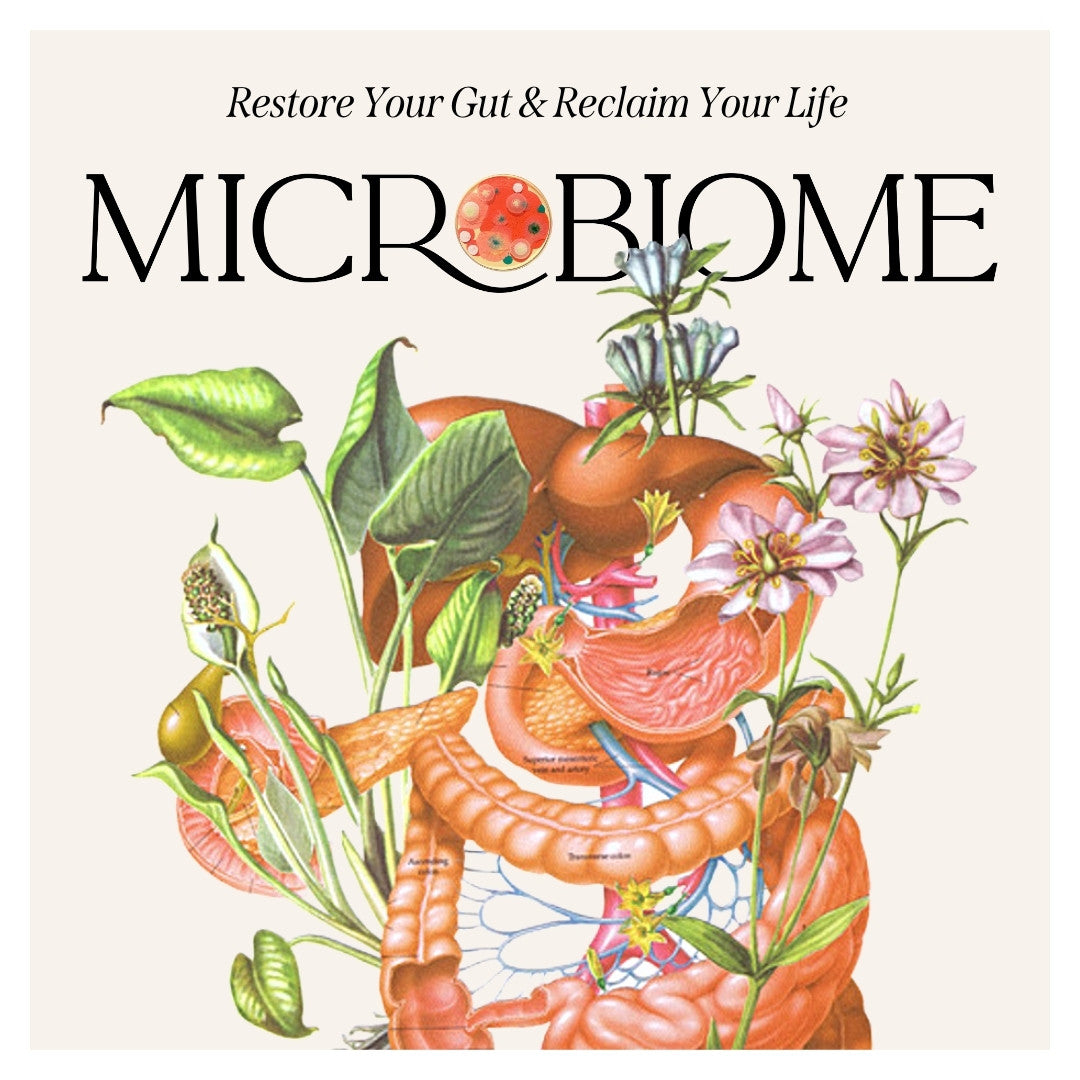

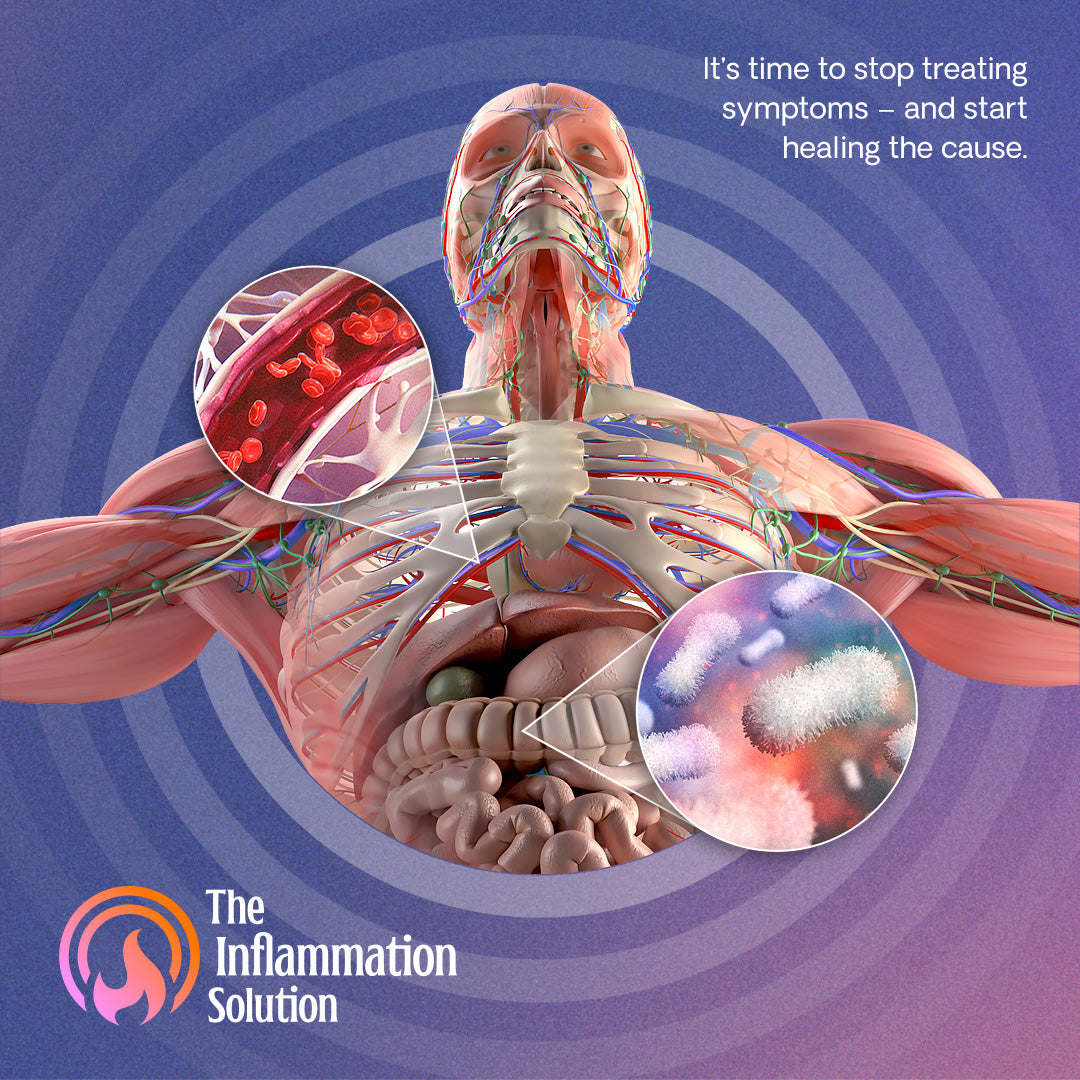
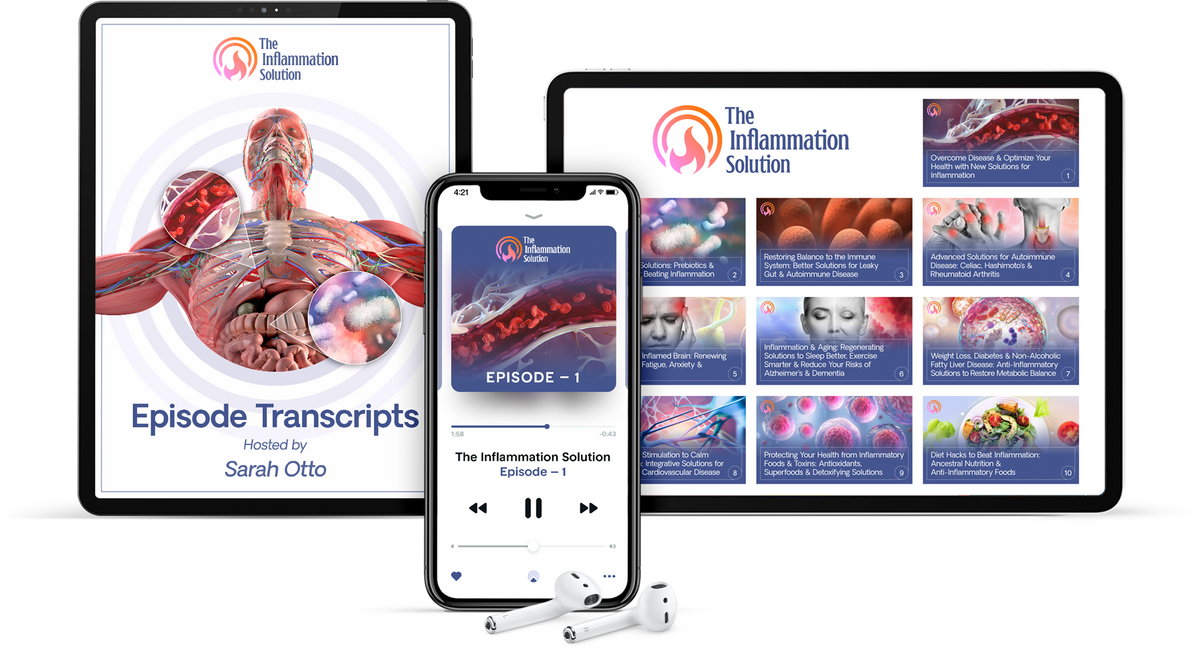
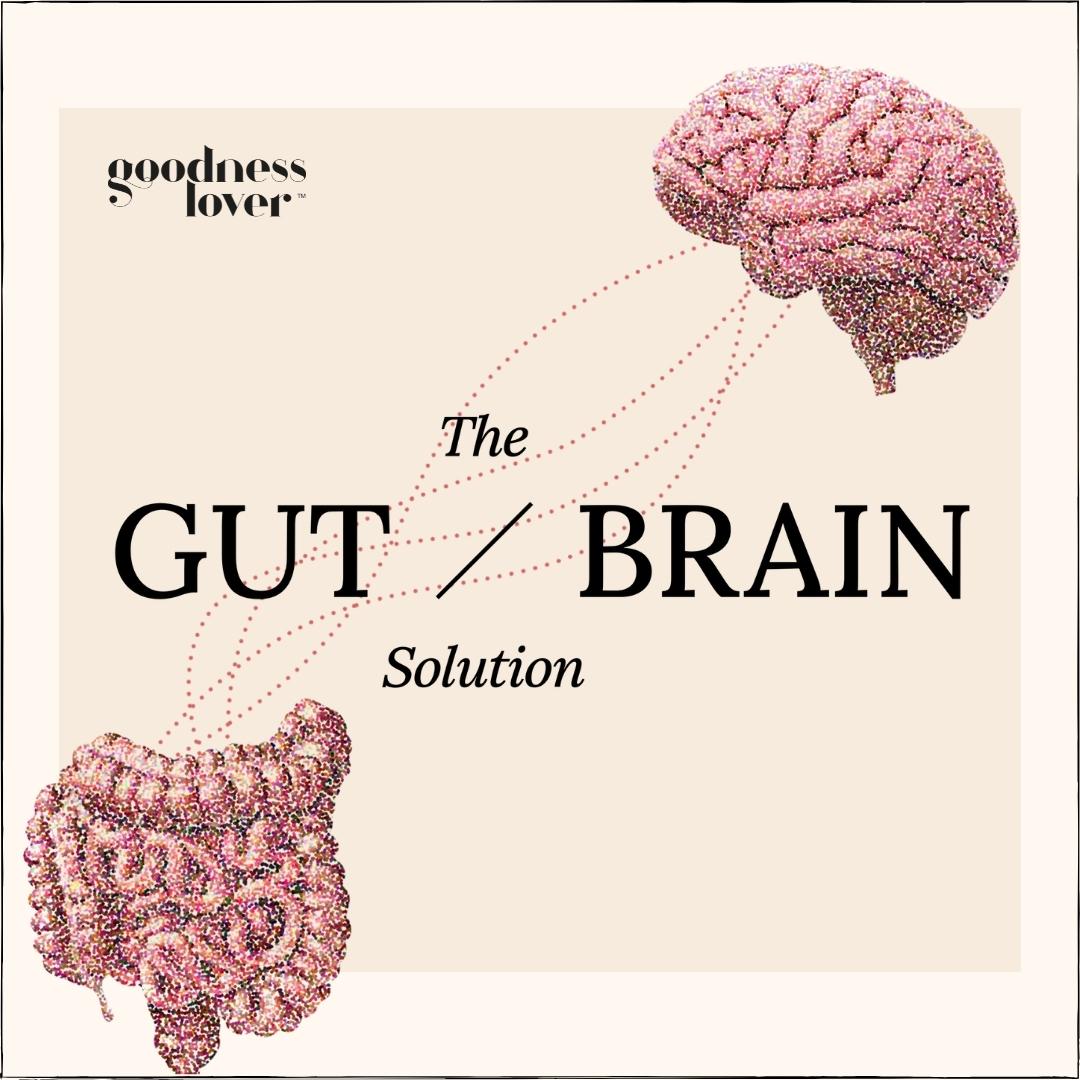

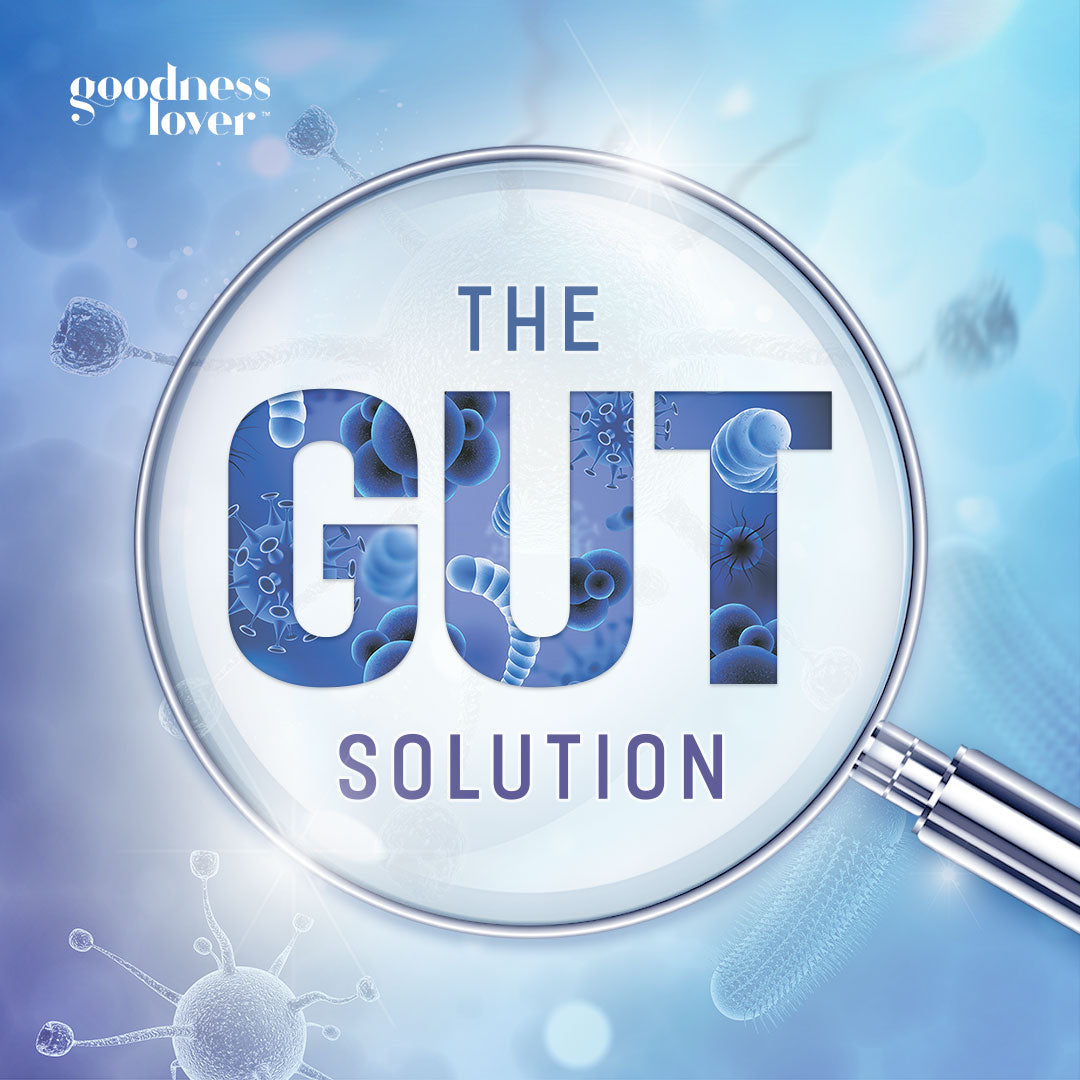
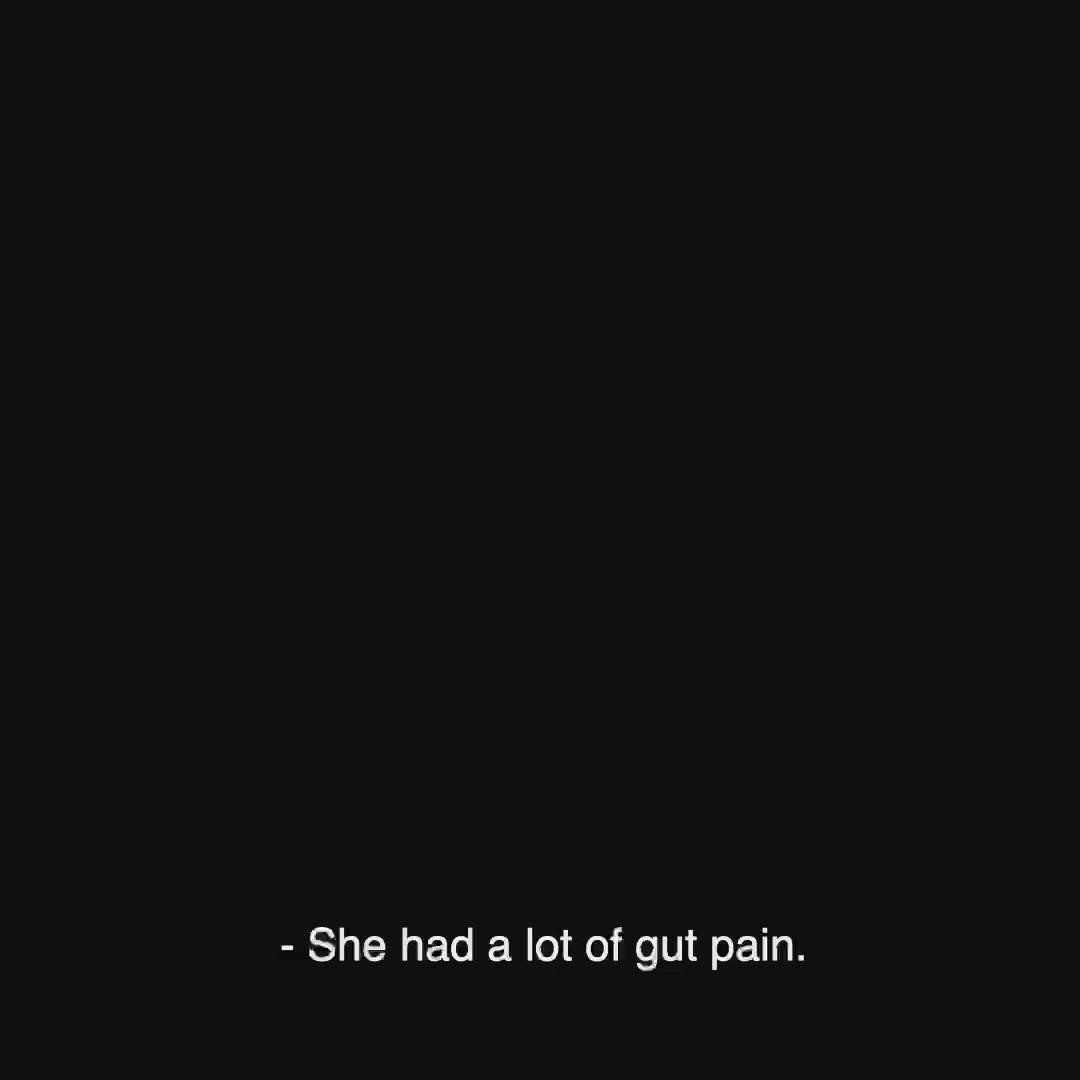
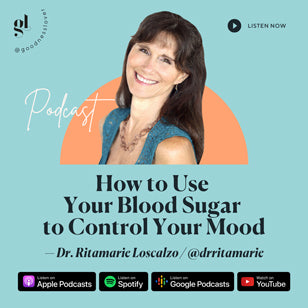
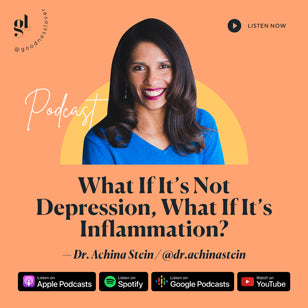

What Do You Think? Comment Below: